Feta which is a sort of traditional Greek cheese is quite salty but it doesn’t scare off its fans. This milky dairy good is consumed worldwide and people have found lots of uses for it in culinary.
Feta is eaten as it is, with bread, in salads (remember Greek salad?), and of course, how could we forget about pizza?! These salty cheesy crumbles on top of Margarita can make everyone’s day!
Of course, one day a question occurred: can you freeze feta cheese? Extended keeping is a good way to preserve foods without them degrading, so maybe it would work with feta as well?
And if you love this cheese the same as we do, this article will definitely be handy for you!
We will share the basic principles of not only how to freeze feta cheese but we will also tell everyone how to store feta cheese and reveal the secrets of feta cheese shelf life.
Why It Is Good to Eat Feta?
This salty (some would even say too salty) dairy foodstuff came to us from sunny Greece. It belongs to so-called brined cheeses, and it is recognized by the typical softness, white milky color, and taste.
Traditionally, it is produced from the milk of goats and/or sheep raised and fed on the greek grass. Sheep-milk feta has somewhat more tangy and sharp flavor compared to its goat-milk counterpart, that is why the feta we usually see on the store counters is half-sheep half-goat milk produced.
Feta is very nutritious and moreover, this dairy goodie is packed with calcium. But are they the only benefits it has? No, it has way more of them!
- Feta is filled with nutrients
- It has a beneficial impact on our wellbeing in general and on our bones’ health in particular – all thanks to the amount of calcium in it. Some even assume that feta is the major source of this element in the Western diet! For this very reason, this dairy foodstuff will be beneficial for anyone who had or has any bone issues, and of course, consuming it can prevent any bone diseases.
- Feta is your gut’s best friend since it contains healthy probiotics, friendly bacteria that support our wellbeing. Regular consumption of this cheese will protect the intestinal tract from such diseases as E. coli and will boost the immune system.
- It has anti-inflammatory properties
- Positive fatty acids this dairy stuff contains bring down the fat mass and support the body composition

Nevertheless, some people claim that feta must be consumed carefully, and they support their point of view by providing the following arguments:
- Feta is pretty high in sodium since the foodstuff is kept in salty brine and also salt is used during the production procedure. It can make it hazardous for people who eat it daily or often enough
- This kind of dairy foodstuff is not lactose-free which makes it harmful for those who are lactose-intolerant
- Unpasteurized feta can be harmful for pregnant women since it may contain bacteria dangerous for the fetus
However, if you’re ok about the lactose and you’re not expecting a baby, eating some feta now and then will only be beneficial for you.
How Long Does Feta Last?
Since this Greek dairy foodstuff is sold and usually stocked in brine, consumers often have the same recurring question: how long does feta cheese last?
Well, feta shelf life is some kind of a tricky thing and often varies greatly because this term hangs upon how the cheese was initially packed.
Nevertheless, regardless of how it is stocked, this goodie must always stay covered with brine, otherwise, its quality will degrade extremely fast.
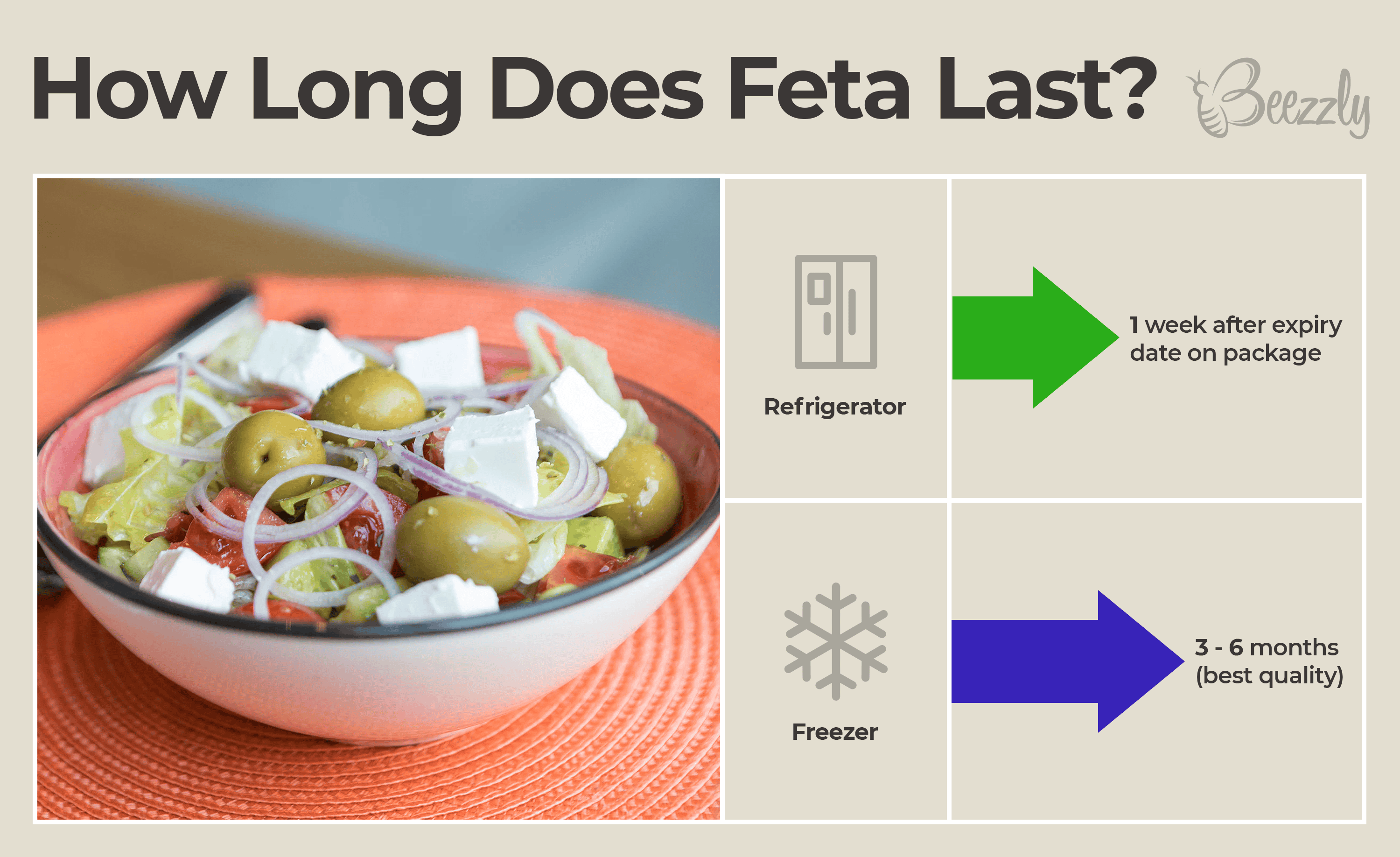
Unopened packets of crumbled feta will normally have a duration of nearly seven days past the printed date. On the contrary, unsealed crumbled goodies won’t be able to stay edible for more than five days after the seal is broken.
If you happen to purchase feta that comes in a wrapped block with no brine, such a foodstuff will remain safe to consume for about thirty days unopened.
The second the packet is unsealed, ensure it will be consumed within seven days, no later.
The most long-living kind of feta is the one that goes with brine. Such a block submerged and sealed can stay consumable for nearly half a year safely!
How long will feta cheese last in the fridge?
Everything will hang upon whether the packet is still sealed or not. If the goodie is packed, then it can remain edible from one month to half a year. Open foodstuff decreases its lifespan to the term of five days or one week at most.
How long does feta cheese last after sell-by date?
Normally, this sort of dairy foodstuff can safely stay edible for about a week past that term. However, it is recommended to check it before consuming anyway.

How long is feta cheese good after opening?
Once opened, any foodstuff will start degrading because of the exposure to air and bacteria. feta is not an exception. Unsealed Greek dairy goodie will only be able to last for five to seven days if refrigerated in time.
To make it all clearer for you, check out this comparative chart:
[table id=67 /]
And remember: feta must never be left unchilled since it will lead to its spoilage for sure!
Does Feta Cheese Go Bad?

Whenever we face the necessity to stock foods, we face the issue that always comes side by side with this need. Yes, we are talking about spoilage.
With feta, it is all the same since even though this dairy foodstuff is brined and quite durable, it will never be able to stay edible forever.
For instance, feta cheese left out overnight being extracted out of brine will most likely start to spoil, besides, it will definitely get dryer which is also not good.
What are the basic symptoms of this Greek dairy goodie going bad?
- the cheese is dry, hard, and gritty
- the surface of feta has traces of mold
- sour any unpleasant odor indicates that spoilage process is going on
If it so happened that any of these signs were spotted, we strongly recommend you throw the foodstuff away.
Even though a block of feta can be consumed when having the minor signs of the quality degradation (for instance, hardness or dryness), its taste and aroma will be so bad that you would not like to give it a try.
And of course, moldy cheese must not be eaten by no means.
Like with any other spoiled product, bad feta can cause bad food poisoning, so be careful and supervise your cheese regularly for any signs of decay.

How to Store Feta?
Since our food stays fresh and eatable as long as we keep it right, the question of how to keep feta cheese fresh is raised pretty often by consumers all over the world.
The most frequent mistake people do after buying a packet of this dairy goodie is to drain the brine and rinse the cheese. This must never be done since the absence of its natural liquid makes feta dry out way faster!
But even if this failure is skipped successfully, other aspects exist that must be considered if we want to stock feta fresh and moist longer:
- Feta must always be submerged in brine. If you bought it in a hard tank with a lid, then it is fine. Just keep it in there and don’t drain the precious liquid!
- If the cheese comes in a soft packet, we would recommend you transfer it to any plastic container with a firm lid. Remove the cheese to its new “home” and pour the brine there as well from the original packaging. Close the lid and chill.
- If for some reason the brine was drained, either cover feta with vegetable oil or prepare a quick homemade brine of two spoonfuls of salt dissolved in two glasses of water.
- No matter what kind of feta was purchased, it must be kept refrigerated both opened and not.

Devoted feta fans who tend to buy big blocks of it at once tend to ask all the time: how do you store blocks of feta cheese? Friends, the procedure is absolutely the same!
Place them in a well-covered tank with the lid to prevent any air exposure, double-check that there is enough brine inside (feta must be covered with it), and refrigerate.
How to Freeze Feta Cheese?
One of the most frequent questions that are asked regarding feta stocking sounds like “can feta cheese be frozen?”
It can be understood: we all want our foodstuff to last to its longest and still remain safe to consume. Everyone likes to enjoy the delicious savor and pleasant aroma of what he/she eats!
Does feta cheese freeze well?
Regarding feta, honestly saying, this dairy foodstuff can not be called the best candidate for freezing because it does undergo certain changes during the process. However, it can also not be called the worse one to preserve.
Preservation process influences feta quite significantly in different terms:
- Freezing feta cheese will affect its flavor. Initially, it is tangy, salty, and rich, with noticeable creamy notes. However, once the foodstuff is defrosted, all these notes will degrade and stop being the same intense as they were before. Also, it will become less salty (but for some of you it will hardly be disappointing!)
- The texture will also be affected when we freeze feta. Yeah, the frosting camera has no remorse! Defrosted Greek cheese will be somewhat crumblier but if the goodie was frosted already crumbled, you will almost see no changes unless you are very picky.

What is indeed a dramatic change in feta is that it gets significantly drier after thawing. It happens because the foodstuff must be deprived of brine prior to solidifying.
So what on Earth shall we do to preserve it?
Relax, we are here to help you out.
First of all, figure out what sort of feta will be frosted since crumbles and blocks will need slightly different procedures.

How to freeze feta cheese crumbles?
To freeze feta cheese crumbles, not much has to be done.
Leave it in the initial tank it was sold in (or use frost-friendly packets/plastic tanks) wrapping that with several layers of cling film. If you want, divide feta in portions.
Attach the date tag and toss to the freezer.

How to preserve blocks of feta?
To preserve blocks of feta, start with draining the brine and patting dry it with a paper napkin.
Cut the whole block in portions hanging upon what it will be used for. Anyway, the smaller the cubes will be the better.
The next step is the most bothersome. Each piece of feta must be wrapped with cling film to protect them from freezer burn and placed in a frost-resistant packet.
Again, label the tank before leaving it in a frosting camera.
If all the steps are performed correctly, feta will be able to stay preserved for two or three months safely.
To unfreeze it, either transfer the frozen tank to the fridge or immerse it into cold water for one or two hours.
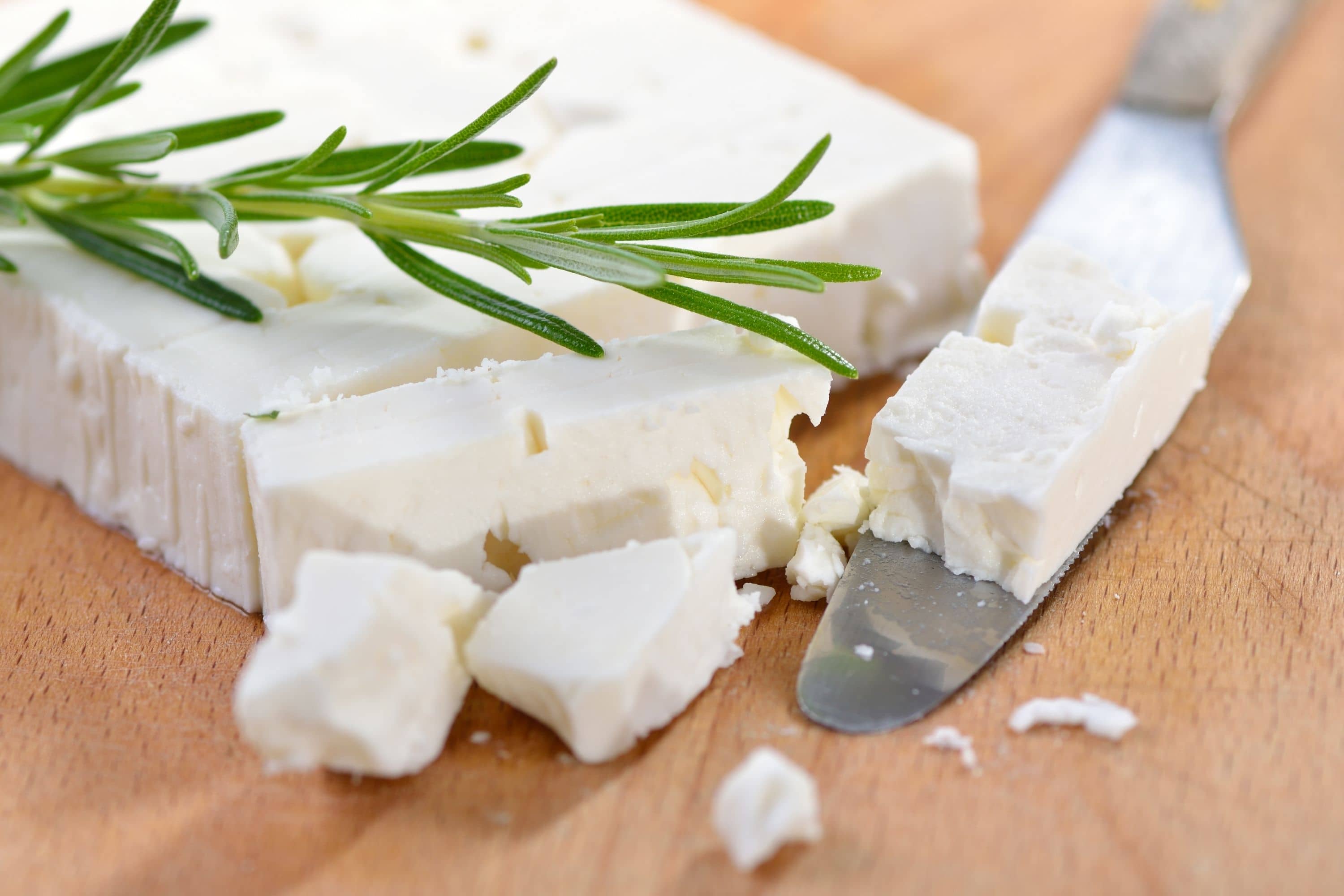
How to Make Use Of Feta. Salads Only?
Most of us think that feta can be consumed either in salads or when added to omelets or sandwiches/toasts. The most experienced consumers can probably mention pizza with feta crumbles.
However, this Greek dairy foodstuff has way more areas of use!
- it can be grilled with veggies and meat
- sprinkle some crumbled feta over the creamy soup instead of salt
- this foodstuff pairs perfectly with beans and seafood
- try out feta crumbles on top of your favorite pasta accompanied by the hot tomato sauce
- place flat feta slices on top of rice and add some pomegranate and greens
- feta and broccoli quiche
- Finally, simply marinate it!
We told you how long feta cheese lasts and figured out the shelf life of feta cheese. Now that all the hints revealed and problems solved, preserving feta will never be a problem for you!

Freezing Feta In Blocks
Feta can be frozen either in blocks or being crumbled. It depends on your own preferences, but both methods are ok to use.
If you decide to freeze this cheese whole in a solid block, we recommend you think of how you are going to use it after you defrost it. If this feta block is going to be used in a hot dish where it will completely dissolve, that’s fine.
But if you are not sure about its further fate, our suggestion is to freeze it in cubes.
This way, you will always be able to grab as much as you need.
But if you do need to freeze a whole block, follow the next steps:
- Strain the brine and pat the block with a paper towel, but don’t try to get all the water out.
- Cut the block into portions so that you could always take what you need and thaw it for cooking a dish.
- Now take a cookie sheet lined with a silicone mat, and transfer your feta onto it. Make sure the pieces don’t touch each other, otherwise, they will freeze together. Put the cookie sheet into the freezer for a couple of hours and wait until feta freezes solid. However, this step can be skipped if you are freezing a whole thing.
- Finally, you can transfer your frozen feta into a freezer-safe container or a bag.
This way, the cheese will remain fresh and usable longer. Especially if you remember to mark the container or a bag with the date you froze the foodstuff.

Is Freezing Feta Cheese Crumbles Possible?
Shortly speaking, yes, it is possible. No matter whether your cheese was already sold crumbled, or you crumbled it yourself, both options will freeze well.
You need to pre-freeze it first. Use a cookie sheet lined with a silicone mat for that.
Spread the crumbles in one layer ensuring they have enough space between each other, otherwise, they will stick together and freeze like that.
Once ready, leave them in a freezer until solid.
Then, transfer the frozen crumbles into a freezer-safe tank and place them into the freezer for storage.
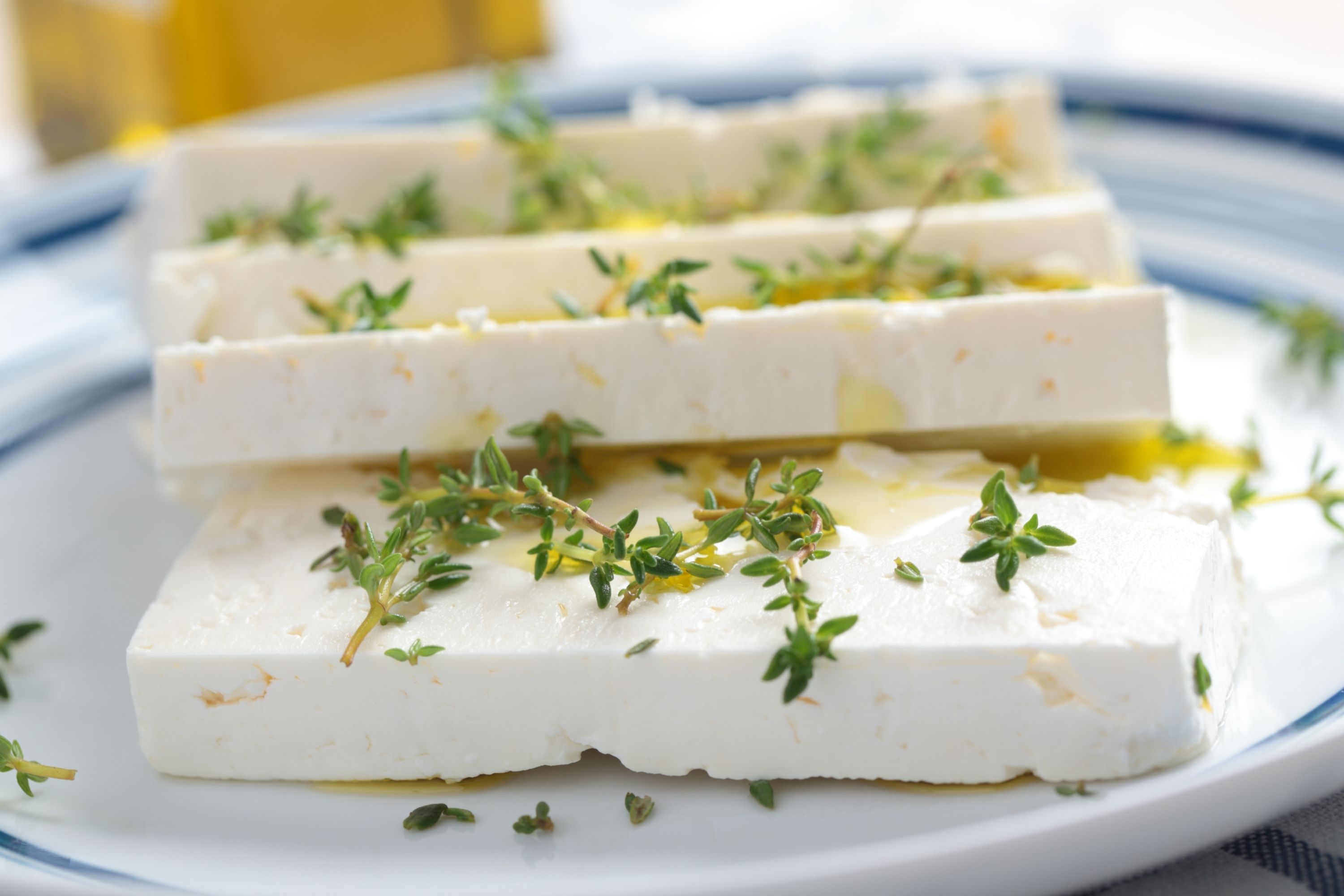
How Does Freezing Affect Feta Cheese?
As everyone knows, freezing affects foods significantly, especially if the products are frost-sensitive. But what about feta, you may wonder? How does frost affect this cheese?
Well, what you do need to know is that, after you freeze and then thaw this soft cheese, feta will get crumblier.
It will also lose a bit of its signature richness and saltiness.
And most likely, your cheese will become a bit drier than it was prior to ending up in the freezer.
However, to notice these changes, you really need to have an eye for them since with feta, it is pretty difficult to spot any texture changes (unlike cottage cheese, for example).
So unless you are an experienced feta-freezing veteran, you will hardly be able to tell whether the cheese was in the freezer or not.
That means that both fresh and out-of-the-freezer feta can successfully be used in salads and other dishes where it is openly exposed.
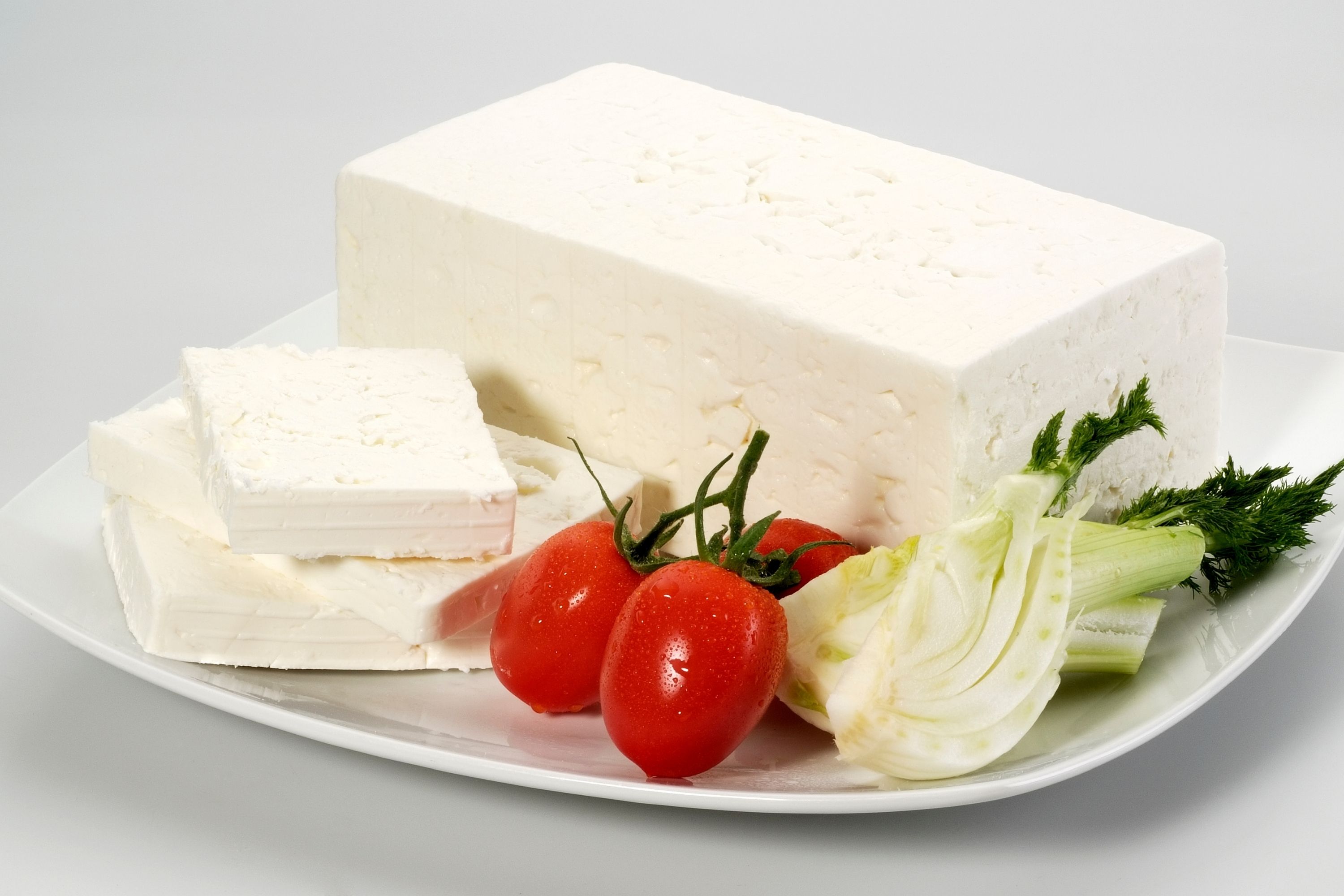
How Long Does Feta Cheese Last In the Freezer?
Freezing is a good way of extending your food’s lifespan. Feta is not an exception.
If you do everything right, this cheese can last for nearly three months in the freezer. However, take a note that, the longer you keep it there, the worse its quality will become.
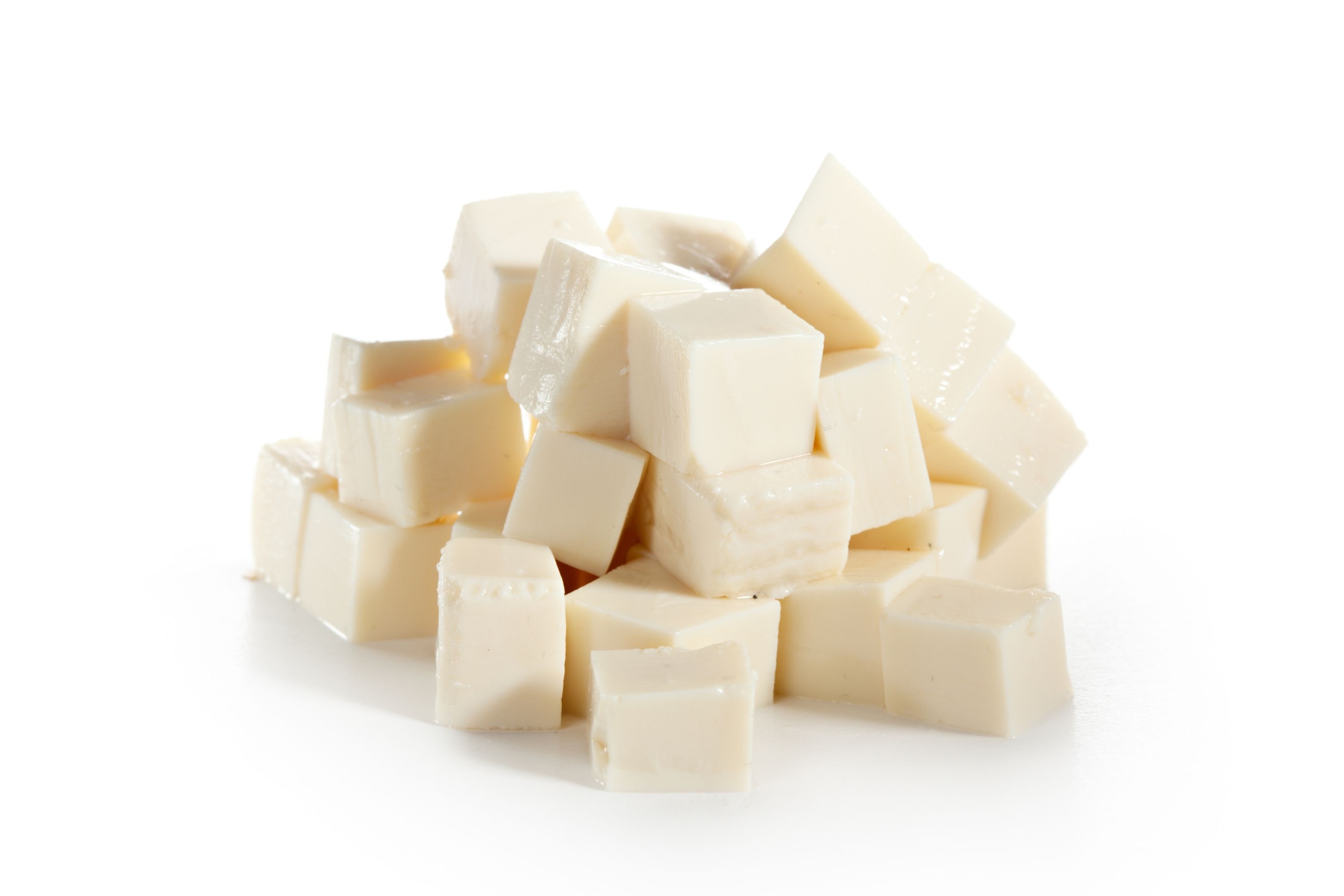
Signs That Feta Cheese Has Gone Bad
Like any other foodstuff, feta can go bad. In the case of this cheese, it will most likely dry out when being stored in the fridge. So if you notice your feta has become dry, hard, and gritty, avoid consuming it since it’s way too old.
Its quality will most likely be fine, but the texture and taste will hardly allow you to enjoy it.
Also, like all cheeses, feta can mold after a while. Of course, if you notice any mold on it, the cheese must not be consumed.
Also, pay attention to the smell of your feta since it is another sign of spoilage. If the cheese smells sour, or unpleasant in any way, avoid consuming it.

How to Defrost Feta Cheese
To thaw it safely, you can opt for one of the following methods:
- thaw it in the fridge
- throw it in frozen
If you defrost feta in the fridge, put the container with it or a bag in the refrigerator for a couple of hours, or better overnight. The only downside of this method is that it requires quite a lot of time and some planning.
In case you plan to melt your feta right over pasta or add it to the soup or stew, you can skip defrosting.
Just incorporate the frozen crumbs, cubes, or the whole block right into the dish and keep on cooking it according to the recipe.
And remember that, once you defrost feta, it must be used within one or two days at most!
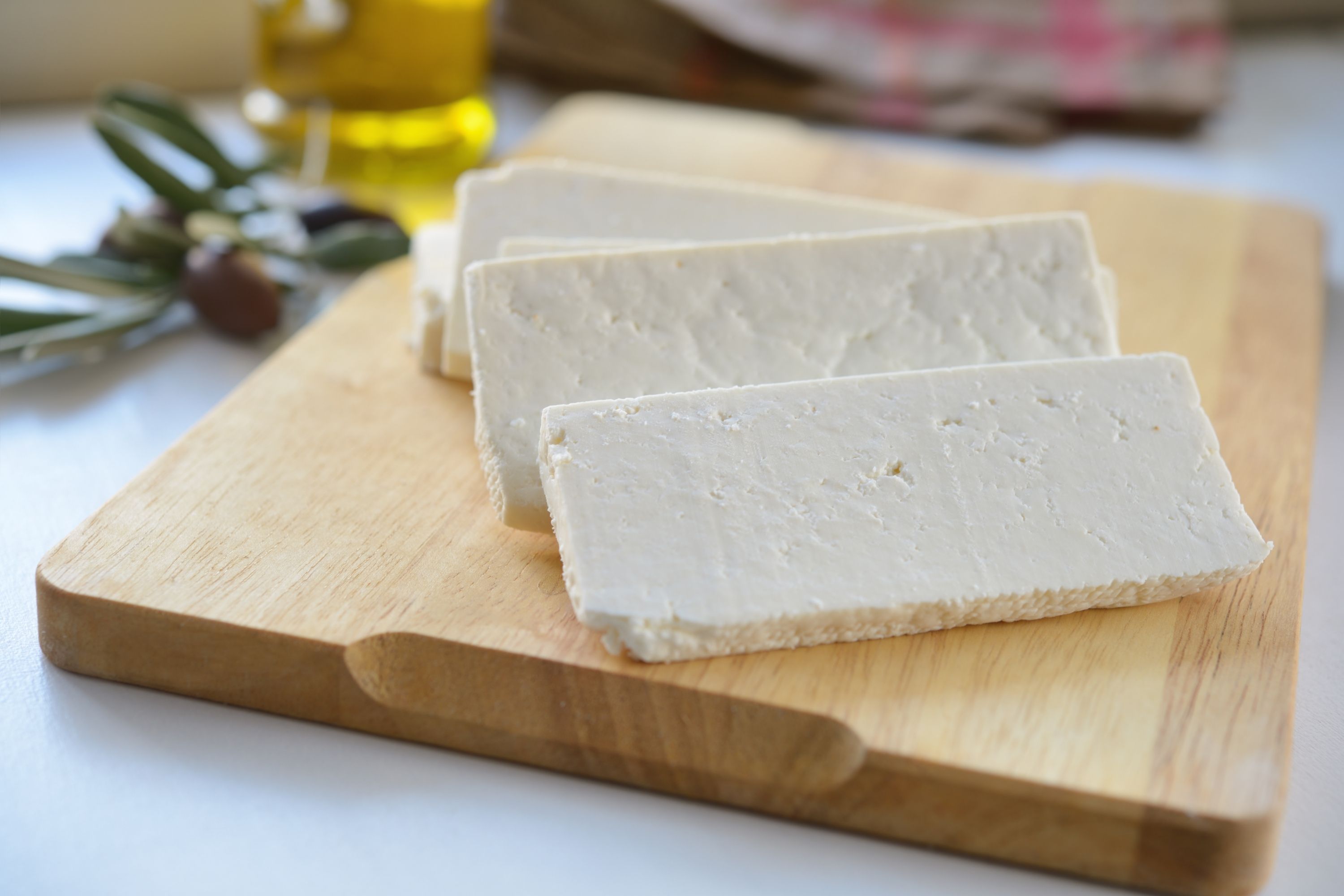
How to Use Defrosted Feta Cheese
Thawed feta is quite a versatile foodstuff. And if you thought that it can be added only into stews or casseroles, or other hot dishes where it would dissolve and disappear, you will be surprised to learn a few more options:
- Melt it on top of pasta or mashed potatoes
- Add thawed feta to cooked sauces
- Add it to creamy soups for some extra taste
- Incorporate thawed feta into any dishes that you cook on the stovetop or bake in the oven
But of course, this is not a complete list! Search on the internet to find more ideas on where to use defrosted feta.
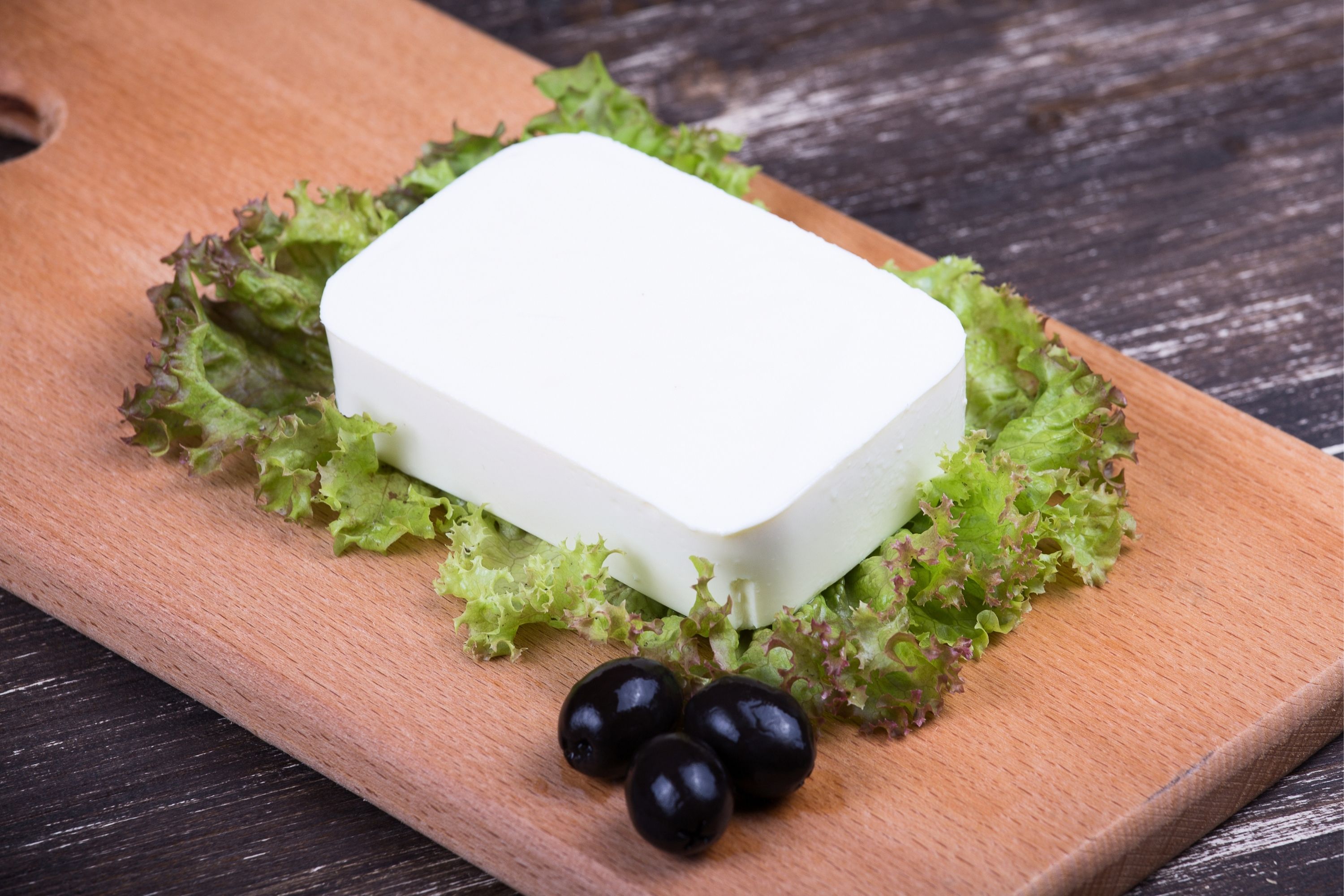
Our Favorite Feta Cheese Recipe
There are plenty of dishes you can make with feta, but there is one that is not only tasty, but also super easy!
You will need:
- 1 loaf of unsliced Ciabatta bread
- 1 ¼ pounds chopped tomatoes
- 2 ounces crumbled feta cheese
- 2 cloves peeled garlic
- 4 teaspoons olive oil
- 1 tsp balsamic vinegar
- Basil
- Salt and pepper
Preheat the broiler, slice the bread, brush it with olive oil, and place the slices into the oven for a couple of minutes.
Meanwhile, combine feta, tomatoes, basil, oil and vinegar in a bowl, and add salt and pepper.
Now that your Ciabatta has spent two minutes in the oven, take it out, rub with garlic cloves, and top with the tomato and feta mixture you have just prepared. Bon appetit!

Conclusion
Feta is not only a delicious food, it is also very healthy like other dairy goods.
And since it is pretty versatile in terms of use in various dishes, feel free to experiment in order to find your favorite meals that include this soft and tasty cheese.
[wp-faq-schema title=”Frequently Asked Questions”]

How do you make feta cheese last longer? No matter what I try, it spoils faster than I expect.
I’d suggest you keep it in brine. Perhaps, you drain it and that’s why your feta goes off?
Also, remember to seal it tightly and always refrigerate. That is the basic rules.
How long can you keep feta cheese in olive oil? I used it instead of brine I accidentally drained but will it have the same effect?
My experience shows that oiled feta will be ok for nearly three weeks if you don’t finish it earlier.
Hi! Please, tell me: how do you store feta cheese? I never used it before and I’d like to do everything right. Thanks!
Hi! Well, you just need to keep it refrigerated (that’s a must) and submerged in the brine (that’s a number two must!). What else? Yeah, keep it sealed tightly since air makes feta dry. I guess, that’s all.